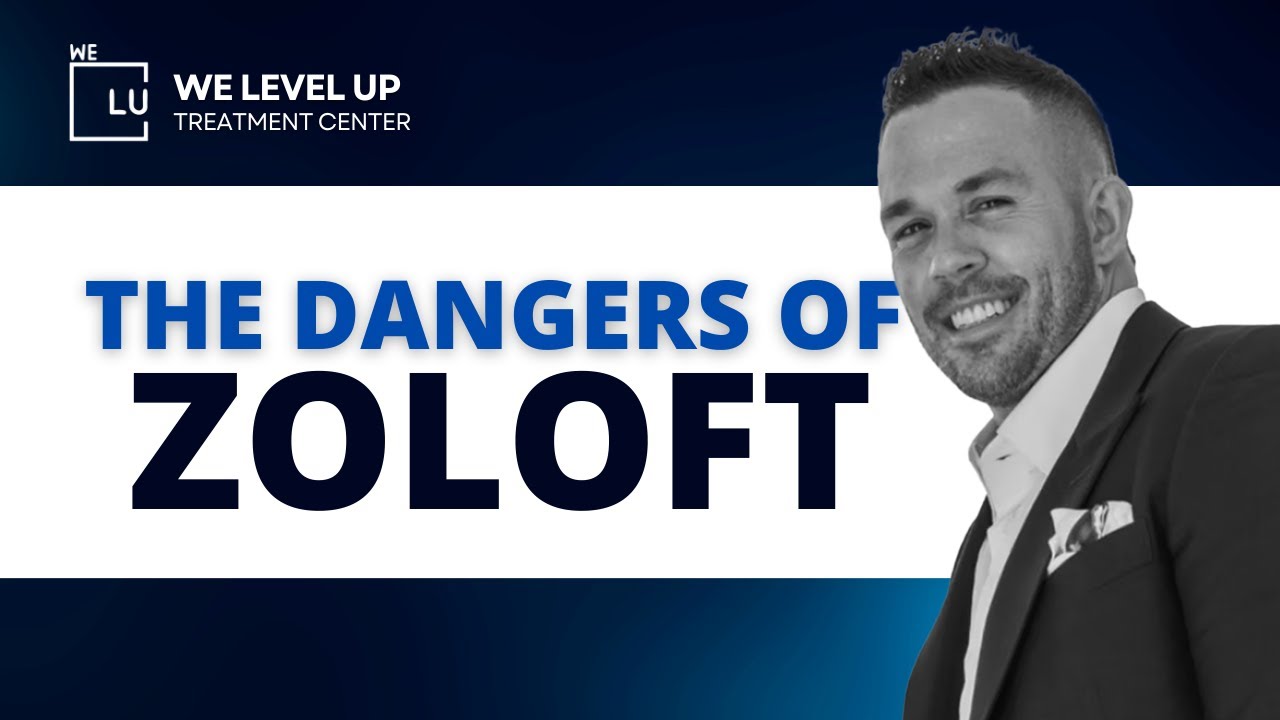What is a Narcissistic Personality?
Narcissistic personality disorder is a mental condition where the person has an exacerbated sense of their importance, treating others pejoratively. This is often confused with highly high self-esteem, but there is nothing more contrary to this; the narcissist struggles internally with feelings of fear and rejection that camouflage with a thirst for importance and attention.
Who is a narcissistic person? A person whose thinking makes them believe they are more critical, tending to exalt themselves, living in a world entire of lies created by themselves, a distorted reality, a lack of empathy, and a vicious circle that only tries to hide the actual lack of personal love.
What is a Narcissistic person?
There are very clear signs of Narcissistic personality disorder in a person, and narcissists are not bad people; it’s their behavior that’s problematic. They have been conditioned to believe they are unique and deserve to be treated better than others and approach the world accordingly:
- Exaggerated self-importance
- Fixation on power, beauty, or success
- Sense of entitlement
- Exclusive association with individuals deemed necessary or special
- Exploitative interpersonal behavior for personal gain
- Arrogance
- Lack of empathy
- A constant need for admiration
- Envy of others or a belief that others envy them
Narcissistic Personality Disorder Symptoms
There is no standard list of symptoms because they can vary from person to person, but some narcissistic personality traits have been documented by medical research; exhibited behaviors give the following list of the most common symptoms of Narcissistic personality disorder:
- Insist on having the best of everything — for instance, the best car or office.
- Expect to be recognized as superior even without achievements.
- Feel that they deserve privileges and special treatment.
- Make achievements and talents seem bigger than they are.
- Be critical of and look down on people they feel are not necessary.
- Expect special favors and expect other people to do what they want without questioning them.
- Have an unreasonably high sense of self-importance and require constant, excessive admiration.
- Be envious of others and believe others envy them.
- Take advantage of others to get what they want.
- Be preoccupied with fantasies about success, power, brilliance, beauty, or the perfect mate.
- Believe they are superior to others and can only spend time with or be understood by equally special people.
- Behave in an arrogant way, brag a lot, and come across as conceited.
- Have an inability or unwillingness to recognize the needs and feelings of others.
Risky Behaviors of a Narcissistic Personality (Other Narcissistic Personality Traits)
Individuals with a narcissistic personality disorder may engage in a variety of risky behaviors due to their inflated sense of self-importance and high self-esteem; due to a lack of empathy and a constant need for validation, they look for perfection aesthetically and professionally and trying to stand out from the crowd sometimes they can use questionable decisions. Some common risky behaviors associated with narcissistic personality disorder may include:

Skip to:
Learn More:
- Excessive Spending: Narcissists may engage in impulsive and extravagant spending to demonstrate their perceived superiority and to acquire symbols of success.
- Reckless Business Ventures: Due to overestimating their abilities, narcissists may undertake high-risk business ventures without considering potential consequences.
- Substance Abuse: Some individuals with narcissistic traits may turn to substances as a way to cope with their emotions or to enhance their self-image.
- Addiction to Plastic Surgery or Cosmetic Enhancements: Seeking frequent cosmetic procedures may be a way for narcissists to maintain an idealized image of themselves and receive constant aesthetic admiration. Plastic surgery and cosmetic enhancements have become necessary in corporal and beauty care.
- Manipulative Relationships: Narcissists may engage in manipulative behaviors, such as lying, gaslighting, or emotional manipulation, to control and dominate others. Usually use toxic trends such as ghosting or phubbing.
- Reckless Driving: A sense of entitlement and a disregard for rules may lead to risky behaviors, including aggressive driving or ignoring traffic regulations.
- Infidelity: Narcissists may engage in extramarital affairs to seek additional validation and to fulfill their constant need for admiration.
- Social Media Addiction: Constantly seeking attention and validation, narcissists may engage in excessive self-promotion on social media, leading to addictive behaviors.
- Career Manipulation: Some narcissists may engage in unethical or manipulative practices in the workplace to climb the corporate ladder or achieve success without regard for the impact on others.
- Ignoring Health Concerns: A belief in their invincibility may lead narcissists to neglect their physical and mental health, ignoring warning signs and avoiding seeking medical or psychological help.
Get Help. Get Better. Get Your Life Back.
Searching for Accredited Drug and Alcohol Rehab Centers Near You? We Level Up Texas Is Opening Soon!
Even if you have failed previously and relapsed, or are in the middle of a difficult crisis, we stand ready to support you. Our trusted behavioral health specialists will not give up on you. When you feel ready or just want someone to speak to about therapy alternatives to change your life call us. Even if we cannot assist you, we will lead you to wherever you can get support. There is no obligation. Call our network hotline today.
FREE Addiction Hotline – Call 24/7What Causes Narcissistic Personality Disorder

As other mental health conditions there are no specific causes for NPD, it is described using the biopsychosocial model which describes a combination of risk factors from biological, psychological and socio-environmental factors. This includes but is not limited to genetics, neurobiology, trauma, abuse and parenting. Recent evidence drawn from the longitudinal study of personality disorders suggests that narcissistic personality disorder represents the emergent product of both underlying temperament systems (notably anger), which are genetically influenced and expressed in neurobehavioral systems, as well as environmental inputs; both domains are important to pathogenesis.
Social Factors:
Early signs of narcissistic personality disorder can be detected in environmental and social spaces. That lack of psychological and emotional attachment to a parental figure can result in the child’s perception of themselves as unimportant and unconnected to other people, usually, family, community and society. Typically, the child comes to believe that they have a personality defect that makes them unvalued and unwanted; overindulgent, permissive parenting or insensitive and over-controlling parenting are risk factors towards the development of Narcissist personality disorder in a child.
Parenting and Recognition:
For some individuals have been recognized and praised in their environments, promoting the develop of Narcissistic Personality Disorder. Being praised by adults for perceived exceptional physical appearance or abilities could be a factor to develop narcissistic personality disorder symptoms. Also, some parents overprotect their children, some extra parental caregiving gives some wrong ideas to ther child, that perceived that they should receive the same treatment and attention from others.
Genetic:
Evidence suggests there is a high heritability of narcissistic personality disorder, with a number of genetic influences indicating varying rates of heritability based on subtype. A number of twin studies historically suggested for the heritability of NPD, including personality disorders in general.

Get Your Life Back
Find Hope & Recovery. Get Safe Comfortable Detox, Addiction Rehab & Dual Diagnosis High-Quality Care.
FREE Addiction Hotline – Call 24/7Narcissistic Personality Disorder Test – How Can Be NPD Diagnosed?
The mental health professional will refer to the criteria outlined in the Diagnostic and Statistical Manual of Mental Disorders (DSM-5), which is widely used for diagnosing mental health disorders. To be diagnosed with narcissistic personality disorder, an individual must exhibit at least five narcissistic personality disorder symptoms.
Usually, the first step is a clinical interview, where the mental health professional gathers information about the individual’s symptoms, personal history, and current life situation. This interview may include questions about relationships, work, and overall functioning.
Some chats with family members, friends, or other relevant individuals may be considered to gain a more complete picture of the individual’s behavior and relationships.
Narcissistic Personality Disorder Test
Here in We Level Up Texas you can find the Narcissistic Personality Disorder Test, based on common behaviors, signs and symptoms from narcissistic personality. It’s important to note that diagnosing a personality disorder is a complex task and should be carried out by a licensed mental health professional, such as a psychiatrist, psychologist, or licensed clinical social worker, with expertise in personality disorders and psychological assessment; this test is just a tool.
Opening Soon! First-Class Facilities & Amenities
World-Class High-Quality Addiction & Mental Health Rehabilitation Treatment
Coming Soon! Rehab Centers TourRenowned Addiction Centers. Serene Private Facilities. Inpatient Rehab Programs Vary.
FREE Addiction Hotline – Call 24/7Proven recovery success experience, backed by a Team with History of:
15+
Years of Unified Experience
100s
5-Star Reviews Across Our Centers
10K
Recovery Success Stories Across Our Network
- Low Patient to Therapist Ratio
- Onsite Medical Detox Center
- Comprehensive Dual-Diagnosis Treatment
- Complimentary Family & Alumni Programs
- Coaching, Recovery & Personal Development Events
Narcissistic Personality Disorder Treatment
Finding effective treatment for Narcissistic Personality Disorder (NPD) can indeed be challenging, as individuals with this disorder often face difficulties acknowledging their need for help. It’s important to note that while therapy can be beneficial, there is no specific medication approved for treating NPD.
Narcissistic Personality Disorder Specialist:
- Psychologists: Clinical psychologists specializing in personality disorders are well-equipped to assess and diagnose NPD. They can provide individual therapy, conduct psychological assessments, and develop treatment plans tailored to the individual’s needs.
- Psychiatrists: Psychiatrists are medical doctors who specialize in mental health. They can assess, diagnose, and prescribe medication for NPD and co-occurring mental health conditions. Psychiatrists may work with psychologists or other therapists to provide comprehensive treatment.
- Psychotherapists or Counselors: These professionals may hold various titles, such as licensed professional counselors, marriage and family therapists, or social workers. They provide talk therapy and supportive counseling to individuals with NPD, helping them navigate the challenges associated with the disorder.
Narcissistic Personality Disorder Supportive Therapy:
The primary mode of narcissistic personality disorder treatment is psychotherapy. Different therapeutic approaches may be employed, including cognitive-behavioral therapy (CBT), psychodynamic therapy, and dialectical behavior therapy (DBT). These therapies aim to help individuals understand and manage their thoughts, emotions, and behaviors.
- Cognitive-behavioral therapy (CBT) identifies and changes negative thought patterns and behaviors. It aims to help individuals with NPD recognize and challenge distorted beliefs about themselves and others.
- Dialectical Behavior Therapy (DBT): DBT includes skills training in mindfulness, distress tolerance, emotion regulation, and interpersonal effectiveness.
- Group Therapy: Group settings provide opportunities for interpersonal learning, feedback, and support. Individuals can gain insights into their behavior by observing and interacting with peers. Helps individuals develop social skills, empathy, and a better understanding of how their actions impact others.
Medication Treatment for Narcissistic Personality Disorders:
There is no specific medication approved for the treatment of Narcissistic Personality Disorder (NPD). Unlike certain other mental health conditions, NPD is primarily managed through psychotherapy and behavioral interventions. However, it’s important to note that the field of mental health is dynamic, and treatment guidelines may evolve over time.
Overcoming Narcissistic Personality Disorder. Find the Support You Need.
Overcoming Narcissistic Personality Disorder is often a challenging process to go through alone. However, you can manage Narcissistic Personality Disorder symptoms and successfully recover with assessment, therapy and a robust support system at the We Level Up treatment centers. If you require assistance with your recovery journey, contact a We Level Up treatment professional now. Your call is free and confidential.
Get a free rehab insurance check without any obligation.
Opening Soon! World-class, Accredited, Anticipated 5-Star Reviewed, Effective Addiction & Mental Health Programs. Complete Behavioral Health Inpatient Rehab, Detox plus Co-occuring Disorders Therapy.
FREE Addiction Hotline – Call 24/7End the Addiction Pain. End the Emotional Rollercoaster. Get Your Life Back. Start Drug, Alcohol & Dual Diagnosis Mental Health Treatment Now. Get Free No-obligation Guidance by Substance Abuse Specialists Who Understand Addiction & Mental Health Recovery & Know How to Help.
Narcissistic Personality Disorder Infographic
The illustration is about the very clear signs of Narcissistic Personality Disorder (NPD) and how it manifests in behavior. While individuals with NPD often exhibit grandiosity and a sense of entitlement, it’s important to remember they aren’t inherently “bad” people. Their problematic behaviors stem from deeply ingrained beliefs about their own superiority, often rooted in past conditioning. This illustration visually represents the disconnect between their perceived image and reality, highlighting the challenges they face in relating to others authentically.

Embed the above “Risky Behaviors of a Narcissistic Personality” Infographic to your Website. This infographic is provided by the We Level Up Addiction Treatment Center team. To use the above infographics, you agree to link back and attribute its source and owner at https://weleveluptx.wpengine.com/narcissistic-personality-disorder-treatment/
Risky Behaviors of a Narcissistic Personality image link: https://weleveluptx.wpengine.com/wp-content/uploads/2024/01/Risky-Behaviors-of-a-Narcissistic-Personality-1024×1024.jpg

Embed the above “What Causes Narcissistic Personality Disorder” Infographic to your Website. This infographic is provided by the We Level Up Addiction Treatment Center team. To use the above infographics, you agree to link back and attribute its source and owner at https://weleveluptx.wpengine.com/narcissistic-personality-disorder-treatment/
What Causes Narcissistic Personality Disorder image link: https://weleveluptx.wpengine.com/wp-content/uploads/2024/01/Risky-Behaviors-of-a-Narcissistic-Personality-1024×1024.jpg
Unmasking My True Self: Am I a Narcissist? Exploring Self-Discovery!
Start a New Life
Begin with a free call to an addiction & behavioral health treatment advisor. Learn more about our dual-diagnosis programs. The We Level Up treatment center network delivers recovery programs that vary by each treatment facility. Call to learn more.
- Personalized Care
- Caring Accountable Staff
- World-class Amenities
- Licensed & Accredited
- Renowned w/ 100s 5-Star Reviews
We’ll Call You
Search We Level Up Narcissistic Personality Disorder, Mental Health Topics & Resources
Sources
- National Institute of Mental Health (NIMH) – Narcissistic Personality Disorder:
- MedlinePlus – Narcissistic Personality Disorder
- Centers for Disease Control and Prevention (CDC) – Mental Health Disorders
- National Institutes of Health (NIH) – Narcissistic Personality Disorder
- Newport Institue: How Having a Narcissistic Parent Impacts Young Adult Mental Health
- W. Keith Campbell; “The Narcissism Epidemic: Living in the Age of Entitlement”
- Emily Grijalva, Daniel N. Jones, and Brent W. Roberts. Published in the Journal of Personality and Social Psychology; “The Narcissistic Personality: How and Why Severity Varies Between and Within Societies”
- Medical News Toyd “Examples of narcissistic behavior”
- Krizan Z, Herlache AD (February 2018). “The Narcissism Spectrum Model: A Synthetic View of Narcissistic Personality”. Personality and Social Psychology Review.
- Daum M (6 January 2011). “Narcissist — give it a rest”. Los Angeles Times.






